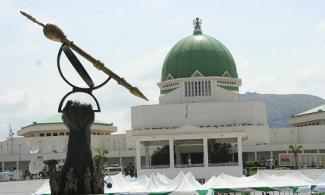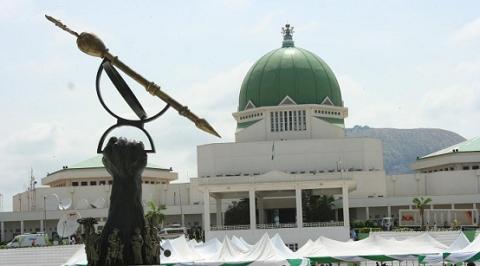
A coalition, Civil Society Network against Corruption (CSNAC), has petitioned the Economic and Financial Crimes Commission (EFCC), over an alleged case of money laundering in a banking transaction involving the National Assembly between 2009 and 2015.
A coalition, Civil Society Network against Corruption (CSNAC), has petitioned the Economic and Financial Crimes Commission (EFCC), over an alleged case of money laundering in a banking transaction involving the National Assembly between 2009 and 2015.

In the petition, signed by CSNAC chairman Olanrewaju Suraju, the coalition stated that the federal legislature led by the Clerk, Salisu Maikasuwa, his predecessor, Yemi Ogunyomi, and their representatives, extensively violated the Money Laundering Act (MLA) (2004, 2011) in banking transactions leading to the withdrawal of about N42 billion in public funds.
Taking its cue from a report published by an online newspaper, Premium Times, dated 30th December 2015, Mr. Suraju noted that it is unfortunate that lawmakers and the parliament paid billions of naira from the nation’s coffers as remuneration for law making.
Quoting the report, CSNAC stated, “the excessive cash withdrawals spanned the tenures of three Clerks to the National Assembly, Nasiru Arab, Yemi Ogunyemi and the incumbent, Mr. Maikasuwa, with the largest withdrawals made during the reign of the last two”.
According to the Premium Times report, between 2009-2015, the three Clerks withdrew a total of N6.37 billion from the Guaranty Trust Bank (GTB) and United Africa Bank (UAB). Of the N6.37 billion the sum, N4.78 billion was withdrawn from GTB between September 9, 2009-August 14, 2015 by Mr. Arab and Mr. Ogunyomi. The remainder, N1.59 billion, was withdrawn from the UBA between January 1, 2011-August 8, 2015 by Mr. Maikasuwa.
CSNAC also highlighted the fact that Deputy Senate President Ike Ekweremadu and 49 other Senators, all of whom were members of the Senate Committee charged with reviewing the 1999 Constitution, also made large withdrawals as well as two transfers.
However, CSNAC noted that these activities did not violate the MLA, but that the purpose of these withdrawals were murky.
“Mr. Ekweremadu and 49 others who were members of the Senate Committee on the review of the 1999 constitution also made large withdrawals. The committee made two transfers from the UBA account – N1.75 billion on November 17, 2014, and N878.6m on February 2, 2015. This does not violate the MLA but the purpose of the withdrawals remained unclear,” CSNAC stated.
The coalition also listed Senators Ayogu Eze (Enugu State), Eyinnaya Abaribe (Abia State), Anthony Manzo (Taraba State), and Umaru Dahiru (Sokoto State) as beneficiaries of the withdrawals by the committee. Once again CSNAC admitted that the withdrawals did not violate the MLA, but that the transfers did “smack of corruption”.
In addition to the above mentioned Senators, several members of the House of Assembly were also beneficiaries. These House Members included, current Speaker, Yakubu Dogara, former Majority Leader, former Majority Leader Mulikat Adeola, Nkeiruka Onyejeocha (Isuikwato/Umunneochi), Chinyere Igwe (Port Harcourt), Eziuche Ubani (Obingwa/Osisioma/Ugwumagbo), Umar Bature (Sokoto North/Sokoto South), and Mohammed Sani Tahir (Ehiogie Idahosa-West).
According to CSNAC, both the former Speaker, Aminu Tambuwal and his former Deputy Speaker, Emeka Ihedioha, were also beneficiaries. Mr. Tambuwal was paid N25m and Mr. Ihedioha received N8.4m, both payments came from the GTB account.
CSNAC concluded its petition by expressing its extreme displeasure with the current developments.
“It is quite unfortunate that lawmakers and the parliament who paid themselves billions of naira from the nation’s coffers will turn out to be the chief violators of the laws they enacted.
“Therefore, CSNAC demands that the EFCC conduct a thorough investigation into the issues raised herein, as well as ensure that the appropriate punishments are meted out to all the perpetrators; including the banks that allowed these infractions to continue without reporting them to the appropriate authorities,” the group’s petition concluded.